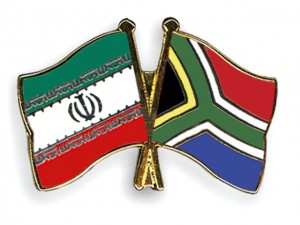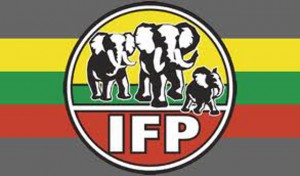Parliament
21 April 2016
Dr. Pieter Mulder: FF Plus leader
The current drought is being described as the worst drought in 100 years. Thousands of small farmers and subsistence farmer’s livelihoods have been wiped out. Only in the next six months will we truly be experiencing the true impact of the drought.
Experience it in terms of food prices which are still rising
Experience it in terms of small and commercial farmers who cannot farm any longer.
Van die 35 000 kommersiële boere is tot 10% in ernstige finansiële nood. Dit beteken hulle het al hulle buffers opgebruik. Hulle het byvoorbeeld nie meer vee om te verkoop om kontant vir hulle skuld te skep nie. In die volgende seisoen sal hulle nie kan geld leen om te kan plant ten einde te probeer om met ʼn nuwe oes uit die skuld te kom nie.
As die boer nie meer kan boer nie, moet hy sy grond verkoop. Dan verloor die plaaswerkers hulle werk. Dit gaan maak dat duisende werkers en kleinboere opnuut na die stede stroom.
Om dit te voorkom, sal banke hierdie boere tegemoet moet kom deur hulle skuld terugbetalings uit te stel. Maar die regering moet ook besluit of dit enigsins vir hulle ʼn prioriteit is om hierdie nuwe stroom werkloses na die stede om te keer.
Ek sukkel nog om presies vas te stel watter droogtehulp uit die departement gekom het en aan wie die hulp gegee is. As dit slegs aan opkomende en bestaansboere gegee is, maak dit van die departement ʼn rassistiese departement. Wat ek verder wil voorspel is dat hierdie minimale hulp aan swart boere nie hulle probleme gaan oplos nie. Ek wil verder voorspel dat die gebrek aan hulp aan kommersiële boere, ingrypende gevolge in plattelandse gebiede gaan hê.
Besides the drought, what are the important problems in agriculture currently?
Water is one, the shortage of water and especially the pollution of water affects agriculture directly.
Similarly energy, amongst others, the cost of electricity and fuel.
But the most important problem remains uncertainty.
Uncertainty created by government statements.
Especially uncertainty about private ownership. This leads to farmers not investing and expanding.
But not just private ownership for white farmers, but also private ownership for new black farmers.
The land the state purchased to redistribute, remain predominantly state land. Because ownership remains with the state, new farmers cannot obtain loans because the land is not theirs.
This way they remain dependent on the state and are set up for failure.
Mr. Janovsky, chief executive of Absa AgriBusiness, calculates that approximately 90% of farms which have been successfully claimed are no longer being commercially operated.
Let’s compare Zambia to Zimbabwe.
After 1994 Zambia recognised private ownership of land and encouraged a free market. During that time, Zambia’s GDP tripled. Zambia, which traditionally imported maize from South Africa, became self-sufficient and is now exporting agricultural products.
During the same period, Zimbabwe adopted a new land policy, effectively nationalising land.
In this period, Zimbabwe’s economy was halved, and unemployment rose from 20% to 80%.
Zimbabwe, once the food basket of the region, became import-dependent on South Africa for many primary products, and for the first time in 2012, became our largest export destination of soybean oil, sunflower seeds and oils, and wheat.
We all took note of the Arab Spring uprisings in different countries. On how conflict and revolution brought governments down overnight. What is the possibility of the same happening in South Africa?
A prominent leader said that strategic essentials to avoid a revolution and conflict in South Africa are Defense, the Police, and Intelligence Services. He is wrong. The strategic essentials are not Defense, Police, and Intelligence Service. It is water, energy, and food security through agriculture. Cut water, cut energy and cut food and you have a revolution.
Die huidige onsekerheid word geskep omdat baie landboubesluite nie op grond van feite geneem word nie, maar op grond van politiek geskepte persepsies.
As hierdie benadering nie in die toekoms gaan verander nie, gaan die regering ons landbou terugbestuur na die Middeleeue toe in plaas van die toekoms in.






